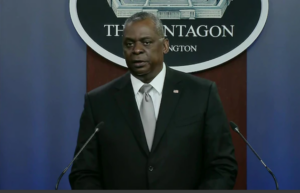
Defense Secretary Lloyd Austin on Tuesday said he would support removing a congressional authorization that requires senior military leaders to annually provide Congress with their unfunded priorities lists (UPLs) and suggested that they are linked more to the needs of regional commanders rather than global defense priorities. Austin was responding to a line of questions from Sen. Elizabeth Warren (D-Mass.), who said the defense “wish lists…distort our budget process” and that the UPL requests are often repeated each year, suggesting…

 By
By 











